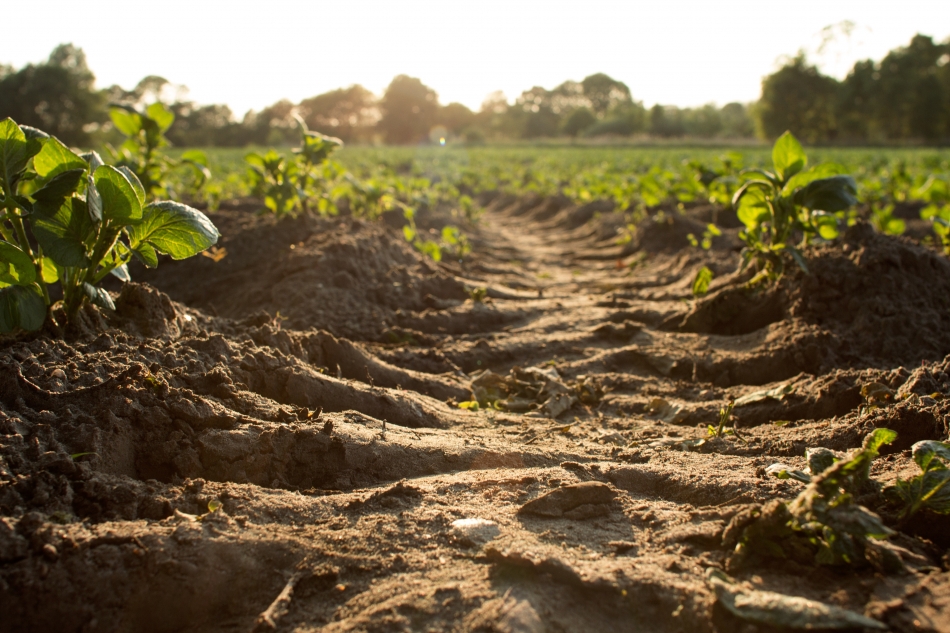Why we should appreciate our soils
 Soil is where it all begins. Few people know that soils are a non-renewable resource. It takes over 1000 years to make 1 cm of soil. This means that in our lifetime, all the soil we see is all there is.
Soil is where it all begins. Few people know that soils are a non-renewable resource. It takes over 1000 years to make 1 cm of soil. This means that in our lifetime, all the soil we see is all there is.
Soils do amazing things for us that we sometimes take for granted. They sustain food production, filter our water, are the source for our medicines and help us to combat and adapt to climate change.
95% of food is produced in our soils.
Here are 6 reasons we should appreciate the ground beneath our feet:
1. Caring for soils = Increased Food security
95% of food is produced in our soils. We can’t hope to feed the growing population and produce the 50% more food we need by 2050 without considering and preserving the quality of our soils. The nutrient content of soils directly influences that of the plants grown within them. Soils exchange nutrients and water with the plant’s roots. The healthier the soil is, the better the crop will be. Soil is a non-renewable resource and its preservation is essential for food security.
2. Caring for soils = Greater biodiversity
Soils host a quarter of our planet’s biodiversity. There are more living organisms in a tablespoon of soil than there are people on Earth. Nowhere in nature are species so densely packed as in soils. Biodiversity is important to the well-being of our planet. It helps species survive and adapt to the changes in nature. Preserving biodiversity means that we are helping keep our planet resilient, adaptive and healthy. Organic farming, rotation grazing, crop rotations and conservation agriculture can preserve the biodiversity found in soils. These methods sustainably increase farm productivity without degrading soil and water resources.
3. Caring for soils = Fewer greenhouse gases
Soils help to combat and adapt to climate change. When managed sustainably, soils can play an important role in mitigating climate change by storing carbon (sequestering carbon) and decreasing greenhouse gas emissions to the atmosphere. Healthy soils with a high organic matter content can also store large amounts of water which help crops cope with drought and adapt to extreme precipitation.
4. Caring for soils = Better livelihoods
Healthy soils can ensure food security, provide better livelihoods and reduce forced migration. Degraded soils means loss of food sources and livelihoods. More than 10 million people have abandoned their homes due to environmental issues including soil erosion, desertification, deforestation and drought. Implementing sustainable soil management strategies that help farmers cope with long-term droughts and soil degradation can help to give people a choice of whether to migrate or stay home.
5. Caring for soils = Cleaner water
Soils are key to a supply of clean water. Soils capture, store and filter water, making it safe to drink. Forests in highland areas not only prevent soil erosion but also ensure good quality drinking water for downstream users. Soils also store water, making it available for crops.
6. Caring for soils = More medicines
Soils are important to human health. Most well-known antibiotics, including penicillin, originated from soil microorganisms. Did you know that over 500 antibiotics derived from soil microbes!
Soils are being neglected, but we can reverse the trend!
33 percent of soil is moderately to highly degraded due to erosion, loss of soil organic matter, nutrient depletion, acidification, salinization, compaction and chemical pollution. However, sustainable management and careful farming techniques can reverse the trend of soil degradation and ensure current and future global food security.
Source: FAO

